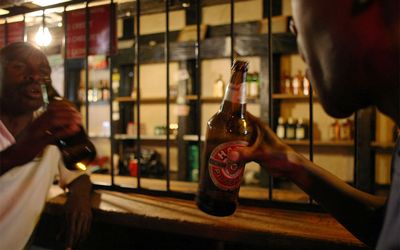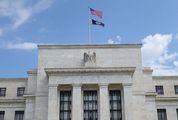SA’s bad news may be good news for AB InBev
by Agency Staff,
2016-03-16 13:39:08.0
OF ALL the countries whose regulators need to approve Anheuser-Busch InBev’s purchase of SABMiller, only one is flirting with a potential junk-bond rating.
SA’s troubles, from a gyrating currency to a flip-flopping government, may be good news for the maker of Budweiser as President Jacob Zuma tries to restore good relations with business. The policy reversal should bode well for merger approval; signoff for previous deals has run behind schedule and included jobs concessions for unions.
"SA is in a very delicate position and needs to be cautious about the messages it sends to international business," Sasfin Securities director David Shapiro said. "Long delays in approving this deal won’t win the country any friends. Since December it’s looking very different."
In December Mr Zuma appointed two finance ministers in four days, which rocked the local markets.
As the economy hovers near recession and a credit-rating downgrade to near junk looms, investors are still concerned about stability at the Treasury amid what is seen as a power struggle between Mr Zuma and Finance Minister Pravin Gordhan.
In Europe, China and the US, the beer companies are divesting a range of assets to smooth the path toward regulatory approval.
It took 18 months for Walmart Stores to gain approval to buy Massmart Holdings. The world’s largest retailer also had to set up a supplier-support fund worth about R200m. SABMiller itself is still waiting for approval to merge its African soft-drink bottling assets, 15 months after it filed the request.
The initial regulatory phase for AB InBev-SABMiller had already taken longer than the 40 days the Competition Commission set for a large merger, spokesman Itumeleng Lesofe said.
The transaction was filed with the regulator on December 14 and the commission had to get consent from the companies for an extension, he said. The commission will then give its recommendation to the Competition Tribunal, which will make the decision on whether to allow the deal. Depending on the outcome, the parties involved may take the decision to the Competition Appeal Court in Cape Town.
"While anything is possible in terms of delays in the regulatory approvals, South Africa needs to tread very carefully since December," said Asief Mohamed, chief investment officer at Aeon Investment Management, which oversees about R2.3bn of assets.
The Congress of South African Trade Unions (Cosatu) wants assurances that jobs will not be lost.
"Our concern is looking at how AB InBev has operated. They are known for penny pinching, for outsourcing and cutting jobs," Cosatu spokesman Sizwe Pamla said.
SABMiller, which has its roots in the 19th century as a brewer for thirsty South African gold miners, "was built by the workers of this country".
The Public Investment Corporation (PIC) has said it is in talks with AB InBev about its concerns over suppliers, especially in the area of agriculture.
Economic Development Minister Ebrahim Patel and Trade and Industry Minister Rob Davies, who asked for conditions on the Walmart deal, said they would not comment at this stage.
AB InBev started trading its shares on the JSE on January 15, easing one of the PIC’s biggest concerns. The brewer listed through a fast-track process that took 21 days to complete once talks started.
That demonstrated AB InBev’s commitment to SA and the rest of the continent, which was critical to the combination with SABMiller, CEO Carlos Brito said.
It also paves the way for the listing of the merged company once the transaction is completed.
"The PIC seems to have been one of the loudest objectors so far, and it seems happier now," Mirabaud analyst Jonathan Fyfe said after the listing. "We’ve got to assume AB InBev will do whatever it takes to get this deal over the line."
Bloomberg

Picture: SOWETAN
OF ALL the countries whose regulators need to approve Anheuser-Busch InBev’s purchase of SABMiller, only one is flirting with a potential junk-bond rating.
SA’s troubles, from a gyrating currency to a flip-flopping government, may be good news for the maker of Budweiser as President Jacob Zuma tries to restore good relations with business. The policy reversal should bode well for merger approval; signoff for previous deals has run behind schedule and included jobs concessions for unions.
"SA is in a very delicate position and needs to be cautious about the messages it sends to international business," Sasfin Securities director David Shapiro said. "Long delays in approving this deal won’t win the country any friends. Since December it’s looking very different."
In December Mr Zuma appointed two finance ministers in four days, which rocked the local markets.
As the economy hovers near recession and a credit-rating downgrade to near junk looms, investors are still concerned about stability at the Treasury amid what is seen as a power struggle between Mr Zuma and Finance Minister Pravin Gordhan.
In Europe, China and the US, the beer companies are divesting a range of assets to smooth the path toward regulatory approval.
It took 18 months for Walmart Stores to gain approval to buy Massmart Holdings. The world’s largest retailer also had to set up a supplier-support fund worth about R200m. SABMiller itself is still waiting for approval to merge its African soft-drink bottling assets, 15 months after it filed the request.
The initial regulatory phase for AB InBev-SABMiller had already taken longer than the 40 days the Competition Commission set for a large merger, spokesman Itumeleng Lesofe said.
The transaction was filed with the regulator on December 14 and the commission had to get consent from the companies for an extension, he said. The commission will then give its recommendation to the Competition Tribunal, which will make the decision on whether to allow the deal. Depending on the outcome, the parties involved may take the decision to the Competition Appeal Court in Cape Town.
"While anything is possible in terms of delays in the regulatory approvals, South Africa needs to tread very carefully since December," said Asief Mohamed, chief investment officer at Aeon Investment Management, which oversees about R2.3bn of assets.
The Congress of South African Trade Unions (Cosatu) wants assurances that jobs will not be lost.
"Our concern is looking at how AB InBev has operated. They are known for penny pinching, for outsourcing and cutting jobs," Cosatu spokesman Sizwe Pamla said.
SABMiller, which has its roots in the 19th century as a brewer for thirsty South African gold miners, "was built by the workers of this country".
The Public Investment Corporation (PIC) has said it is in talks with AB InBev about its concerns over suppliers, especially in the area of agriculture.
Economic Development Minister Ebrahim Patel and Trade and Industry Minister Rob Davies, who asked for conditions on the Walmart deal, said they would not comment at this stage.
AB InBev started trading its shares on the JSE on January 15, easing one of the PIC’s biggest concerns. The brewer listed through a fast-track process that took 21 days to complete once talks started.
That demonstrated AB InBev’s commitment to SA and the rest of the continent, which was critical to the combination with SABMiller, CEO Carlos Brito said.
It also paves the way for the listing of the merged company once the transaction is completed.
"The PIC seems to have been one of the loudest objectors so far, and it seems happier now," Mirabaud analyst Jonathan Fyfe said after the listing. "We’ve got to assume AB InBev will do whatever it takes to get this deal over the line."
Bloomberg





















Change: 0.83%
Change: 0.93%
Change: 0.95%
Change: 0.73%
Change: 1.91%
Data supplied by Profile Data
Change: 0.58%
Change: 0.43%
Change: 0.83%
Change: 0.00%
Change: 0.56%
Data supplied by Profile Data
Change: 0.08%
Change: 0.07%
Change: 0.10%
Change: -0.07%
Change: -0.12%
Data supplied by Profile Data
Change: -0.51%
Change: 0.00%
Change: -0.38%
Change: -0.17%
Change: 1.64%
Data supplied by Profile Data